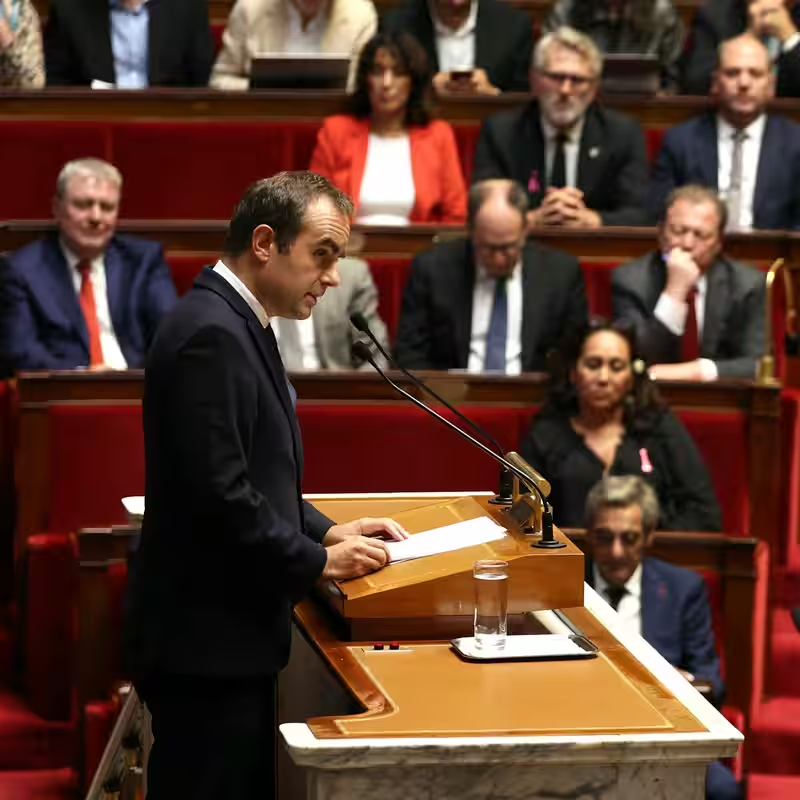In a dramatic reversal aimed at quelling mounting unrest, French Prime Minister Sébastien Lecornu has offered to delay the controversial pension overhaul until after the 2027 presidential election—marking a major retreat by a government teetering on the edge of collapse .
The announcement, delivered in a high-stakes speech to lawmakers on Tuesday, October 14, 2025, comes as Lecornu faces renewed no-confidence motions that could bring down his cabinet for the second time in less than two weeks. “We are ready for a new debate,” Lecornu declared, signaling a rare concession to opposition parties and public pressure .
Why the Pension Overhaul Sparked National Fury
The pension overhaul, originally pushed through by President Emmanuel Macron in 2023, raised France’s retirement age from 62 to 64. Despite massive street protests, union strikes, and widespread public disapproval, Macron insisted the reform was essential to keep the pension system solvent amid an aging population.
But with Macron’s approval ratings now at historic lows and Lecornu’s fragile coalition struggling to maintain control, the political cost has become too steep to bear.
Lecornu’s Survival Play
Facing imminent no-confidence votes—particularly from the Socialist Party, whose support he desperately needs—Lecornu’s pivot is less about policy and more about political survival. By proposing to suspend the pension overhaul until after the next presidential election, he hopes to buy time, calm tensions, and avoid a government collapse that could trigger early elections.
Macron’s Diminished Influence
This concession also underscores the waning authority of President Emmanuel Macron, once seen as a dominant force in European politics. His second-term agenda, anchored by the pension overhaul, now lies in tatters as his own prime minister publicly backs away from it .
What Happens Next?
The proposed delay would effectively freeze the current retirement age at 62 until at least 2027. During that time, the government pledges to “renegotiate” the reform with unions, opposition parties, and civil society—a process many experts call both unprecedented and fraught with uncertainty.
Infographic: Timeline of France’s Pension Crisis
| Year | Event |
|---|---|
| 2023 | Macron forces through pension reform raising retirement age to 64 amid mass protests |
| 2024 | Public discontent grows; unions maintain pressure; Macron’s popularity plummets |
| Oct 2025 | PM Lecornu’s government survives first no-confidence vote |
| Oct 14, 2025 | Lecornu announces delay of pension overhaul until after 2027 election |
Public and Political Reaction
Opposition leaders welcomed the move but remained skeptical. “This isn’t generosity—it’s desperation,” said a Socialist Party spokesperson. Meanwhile, labor unions called the announcement “a victory for the streets,” though they vowed to keep mobilizing until the reform is fully scrapped.
Markets reacted cautiously, with the CAC 40 dipping slightly on concerns over prolonged political instability in the eurozone’s second-largest economy.
Broader Implications for Europe
France’s turmoil reflects a wider trend across Europe, where aging populations and fiscal pressures are forcing tough choices on social welfare. Yet few leaders have faced the level of backlash seen in Paris—making Lecornu’s retreat a cautionary tale for reformers across the continent.




